Alzheimer’s disease is a progressive neurological disorder that affects memory, thinking, and behavior. As one of the most common forms of dementia, it significantly impacts daily life and independence. Early detection of Alzheimer’s disease symptoms is crucial for better management and treatment outcomes. One emerging therapeutic approach, Hyperbaric Oxygen Therapy (HBOT), has shown promise in supporting brain health and potentially slowing cognitive decline.
Understanding Alzheimer’s Disease
Alzheimer’s disease is characterized by the buildup of amyloid plaques and tau tangles in the brain, leading to neuron damage and brain atrophy. According to the Alzheimer’s Association (2023), over 6 million Americans are currently living with Alzheimer’s, and this number is expected to rise. One key factor in its progression is reduced oxygen supply to brain cells, which can accelerate cognitive decline. Addressing this issue with oxygen-enhancing therapies like HBOT may offer potential benefits.
Early Alzheimer’s Disease Symptoms
Recognizing the early signs of Alzheimer’s disease symptoms can help with timely intervention. Below are some common symptoms and how HBOT may play a role in alleviating cognitive impairment:

1. Memory Loss That Disrupts Daily Life
- Forgetting recently learned information, important dates, or conversations.
- Asking the same questions repeatedly.
- Studies suggest that HBOT increases oxygenation in the brain, which may improve cognitive function and memory recall.
2. Challenges in Planning or Solving Problems
- Difficulty with tasks that require concentration, such as managing bills or following a recipe.
- HBOT has been found to reduce neuroinflammation and promote brain cell repair, potentially aiding in problem-solving skills.
3. Difficulty Completing Familiar Tasks
- Struggling with routine activities like driving or using household appliances.
- HBOT supports neurogenesis (new neuron formation) and oxygen delivery, which may enhance motor and cognitive functions.
4. Confusion with Time or Place
- Losing track of dates, seasons, or locations.
- Some research suggests that HBOT can improve spatial awareness and cognitive stability by enhancing brain metabolism.

5. New Problems with Words in Speaking or Writing
- Difficulty following or joining conversations.
- HBOT’s ability to help maintain speech and language function in Alzheimer’s patients.
6. Misplacing Things and Losing the Ability to Retrace Steps
- Placing items in unusual places and being unable to remember where they were put.
- A study on HBOT’s effects on neuroplasticity (brain adaptability) suggests potential improvements in brain function and memory retention.
7. Mood and Personality Changes
- Increased anxiety, depression, or withdrawal from social activities.
- HBOT has been linked to reducing oxidative stress and inflammation, which may stabilize mood and enhance overall well-being.
How HBOT Supports Brain Health in Alzheimer’s Disease
HBOT involves breathing 100% oxygen in a pressurized chamber, which helps increase oxygen saturation in brain tissues. This has several potential benefits for patients experiencing Alzheimer’s disease symptoms:
- Enhancing Oxygenation: Improves cognitive function by increasing oxygen supply to damaged brain cells.
- Reducing Inflammation: Helps decrease neuroinflammation, a key factor in Alzheimer’s progression.
- Stimulating Neurogenesis: Supports the growth of new neurons and blood vessels for better brain circulation.
- Potential Slowing of Cognitive Decline: Studies indicate that HBOT may enhance memory, focus, and overall neural activity.
When to Consider HBOT for Alzheimer’s Disease
- Early intervention: Patients experiencing mild cognitive impairment or early symptoms of Alzheimer’s may benefit the most.
- Medical consultation: It is essential to discuss HBOT with a healthcare professional to ensure its suitability for individual cases.
- Complementary approach: HBOT is not a cure but may be used alongside conventional Alzheimer’s treatments to improve quality of life.
Conclusion
Alzheimer’s disease symptoms can profoundly impact daily life, but early detection and proper intervention can help manage the condition more effectively. HBOT is an emerging, non-invasive therapy that shows promise in supporting brain health by enhancing oxygen delivery, reducing inflammation, and stimulating neural activity. If you or a loved one is experiencing Alzheimer’s disease symptoms, consult with medical professionals to explore whether Hyperbaric Oxygen Therapy could be a beneficial addition to your care plan.
For more information, contact Chicago Hyperbaric today to learn how HBOT may support Alzheimer’s treatment and cognitive well-being. Our team of experts is ready to provide personalized guidance and answer any questions about this innovative therapy. Schedule a consultation now and take the first step toward better brain health.
References
- Alzheimer’s Association. (2023). Alzheimer’s Disease Facts and Figures.
- Boussi-Gross, R., et al. (2013). “Hyperbaric oxygen therapy can improve post-concussion syndrome years after mild traumatic brain injury.” PLoS One, 8(11), e79995.
- Efrati, S., & Ben-Jacob, E. (2014). “Reflections on the neurotherapeutic effects of hyperbaric oxygen therapy.” Dementia and Geriatric Cognitive Disorders Extra, 4(1), 396-402.
- Hadanny, A., & Efrati, S. (2020). “The hyperoxic-hypoxic paradox.” Biomolecules, 10(6), 958.
- Harch, P. G., et al. (2018). “Hyperbaric oxygen therapy in chronic traumatic brain injury: Oxygen, pressure, and gene therapy.” Medical Gas Research, 8(3), 88-90.
- Zhai, Y., et al. (2016). “Effects of hyperbaric oxygen therapy on cognitive function and inflammatory factors in patients with Alzheimer’s disease.” Journal of Alzheimer’s Disease, 49(1), 23-30.




